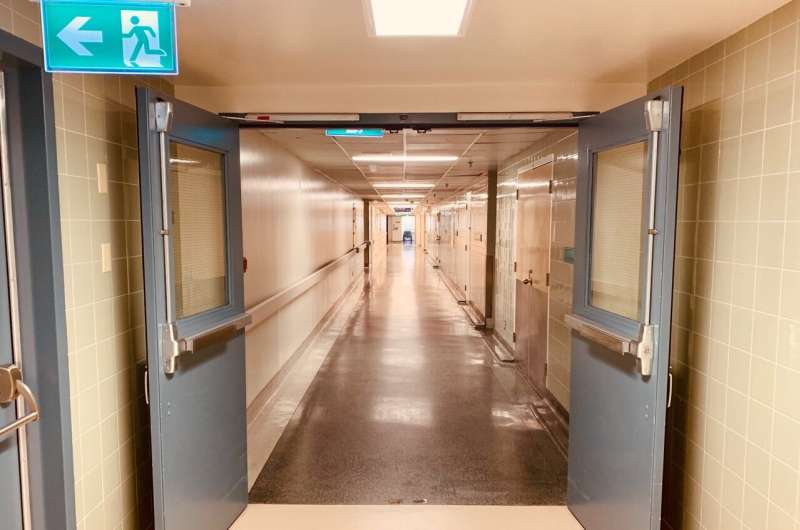More U.S. hospital price transparency needed to slow rising costs, says report

The rising costs of hospital care—among the major contributors to rising health care costs as a whole—can be alleviated by requiring hospitals to be more transparent on the prices of their services, according to a new report from Rice University's Baker Institute for Public Policy.
In late 2019, the federal government finalized rules requiring hospitals to make public a list of standard charges for items and services in an attempt to combat rising costs. These lists must include the cash prices and minimum and maximum rates the hospitals have negotiated with insurers. The Centers for Medicare and Medicaid Services (CMS) cited "multiple studies concluding that a lack of price transparency is an important factor in rising health care costs" when issuing the new rules.
Texas is home to 8.9% of the U.S. population and 9.4% of the nation's hospitals. The report by lead author Vivian Ho, the Baker Institute Chair in Health Economics, and colleagues examines how Texas hospitals' level of compliance with CMS regulations adversely affects costs in the state.
As of January, only 45.3% of the state's hospitals were in compliance. Only 40% of its top 10 hospitals—as ranked by number of Medicare inpatient discharges—were in compliance.
Among Texas' six largest metropolitan statistical areas (MSA)—which comprise 72.9% of the state's population—McAllen-Edinberg-Mission had the highest rate of compliance at 88%, while Houston-The Woodlands-Sugar Land had the lowest at 16%. The report noted that the researchers found smaller hospitals in rural areas were more likely to comply than larger hospitals.
"The Houston MSA's relatively low compliance percentage is heavily influenced by three large health care systems that have skirted the price transparency requirements," according to the report. "These noncompliant systems each have multiple facilities that did not post their prices."
The initial CMS rules said noncompliance could result in a maximum fine of $300 a day, which equals $109,500 yearly. The cost is mostly inconsequential to many large U.S. hospitals, Ho said.
"Houston Methodist and Memorial Hermann do not post their prices, and the federal fines appear small relative to their profits in 2019," according to the report.
To address the problem, CMS issued a rule effective as of January that links the size of fines to a hospital's bed count. The new maximum penalty for a hospital with 550 or more beds adds up to more than $2 million a year.
Last year, the Texas Legislature attempted to increase the penalty for noncompliance by counting each day a violation continues as a separate violation, which would rapidly compound the fines. However, the Texas Health and Human Services Commission recently issued guidance on interpreting the legislation, Senate Bill 1137, that disregards the clause that would establish such guidelines.
"Therefore, a hospital with over $100 million in revenues during the previous year would be required to pay only $365,000 in fines instead of the $65 million intended by the state legislators who authored the bill," Ho said. "For large hospital systems, this rapid compounding would be the only mechanism sufficient to achieve compliance."
The report calls on Texas to revisit the legislation: "Until S.B. 1137 is implemented as intended, Texans will lack the tools they need to shop for reasonably priced, effective hospital care."




















